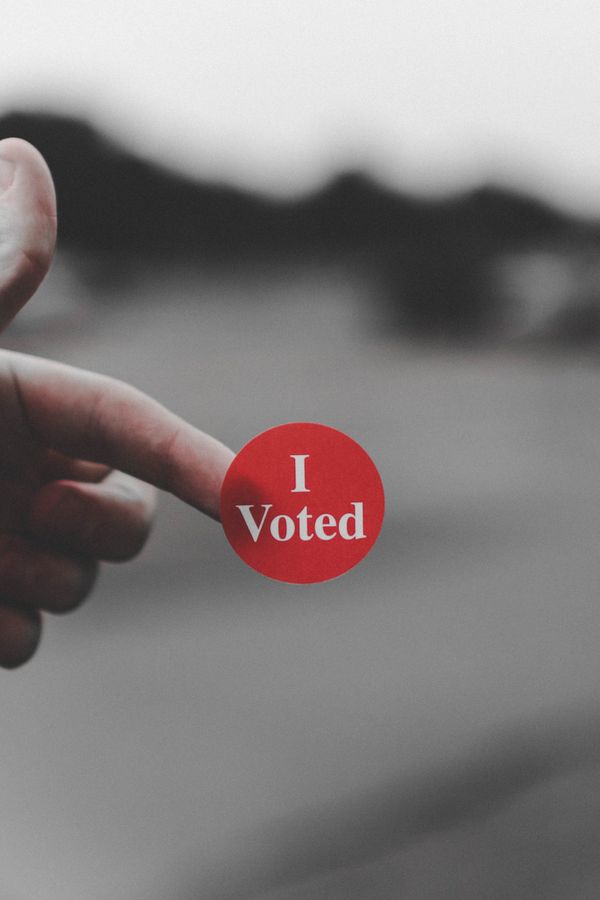On Tuesday, social media lit up with posts of people urging each other to get out and vote. Facebook even created a button for people to share that they had voted. As the selfies with an "I voted" sticker poured in, last minute debates ensued as people attempted to convince their social network to support their candidate.
On Wednesday, half the country rejoiced as our new president was announced, and half the country grieved. Social media sites filled up with emotional posts of every variety, from angry to ecstatic, from dismayed and scared to outright denial.
On Thursday, and into the weekend, the posts continued to comfort, to explain, to celebrate, to distract, and to protest.
And this week, the posts should cease, because as a community of young, energetic, and caring people we must get off of social media and into the community. Regardless of your feelings about the election results, you must do more than click a share button on someone else's post or article. Channel your strong feelings into helping improve your community rather than ranting on Facebook to a community of friends who most likely already agree with you. It is immensely important to exercise your right to vote, but your involvement needs to extend beyond casting one ballot every four years. Local elections and influential involvement with what's happening in your state and in the presidential transition are just as consequential to your everyday life as this past election cycle.
Here are some steps you can take to start getting more involved with and educated about politics so you can start actually making a difference for yourself and your country.
1. Follow your local representatives on social media
If you don't listen to anything else in this article, listen to this. All you have to do is hit the 'follow' button. Facebook will even do all the work for you. It will automatically show you your state's newly elected representatives here. While you're not getting involved with local politics, you're still educating yourself on the people who represent you and what they're doing for your community. The first step to getting involved is learning about the stances and issues that are important to you and what is currently being done in your state to advance your political interests.
2. Contact your representatives
Your elected officials are supposed to represent your voice. So talk to them. Write them letters. Go to meetings. Make them aware of what you're fighting for, what you're concerned about, and what you want them to do. From your local government officials to your State Governors to your Congressional Representatives, all you need to get in touch with your elected leaders can be found here.
3. Find a specific cause you care about and get involved
There are so many issues that people have so many strong opinions on. Instead of explaining to your social network how important you think gun rights are or ranting about the lack of environmental protection in the country, go volunteer with these causes. Your voice can't be heard from your little corner of Facebook. Join the other voices that are fighting for what you want and together you'll become loud enough to make a real difference. Lobby, fundraise, start a group on campus. Click here to learn more about getting involved with specific social issues you care about.
4. Get involved with your local political party
Among both Republicans and Democrats, many were left unsatisfied with the election results. Even if you were satisfied, getting involved in your political party is a better way to show support than using a Snapchat donkey or elephant filter. The best way to keep your party on the track you want to be on is to be part of that party in an influential way. Volunteer, go to meetings, work on campaigns. Go to your party's website to find out what they need from you today.
5. Become a staffer
Volunteering for causes and parties is a great way to get involved, but a lot of the real influence starts inside the government. The new president-elect will be hiring staff for his transition to the presidency. Maybe you voted for him, maybe you didn't. But either way, he's going to be in office and he's going to be our president. If you want the administration to go in the direction you want, join their staff so you can be in a position of influence. Make yourself heard. You can find the application here.
6. Join a think tank
Think tanks consist of experts who do research, publish papers, and provide advocacy on political, social, and economic matters. When the administration needs research or advice on various projects they consult think tanks or other similar organizations. If you want to be involved in influencing future policy, joining a think tank is a great way to do so. Here are some think tanks you could get involved in.
Your political responsibility doesn't end when your candidate wins or loses. Your political responsibility becomes even greater. If your candidate won, you need to keep your goals and interests at the top of priority list. And if your candidate didn't win, you need to make sure their causes and values don't disappear in the loss. And if you didn't have a candidate you supported in this election cycle you need to get out there and fight to make your stances heard by those who don't want to listen.
You voted. So what? You can't stop there. Stop complaining on Twitter and Facebook and do something for yourself and your people. The only way to get your voice heard is to be part of the influential political spheres that have the ability to change things.
"We are the ones we have been waiting for."





















